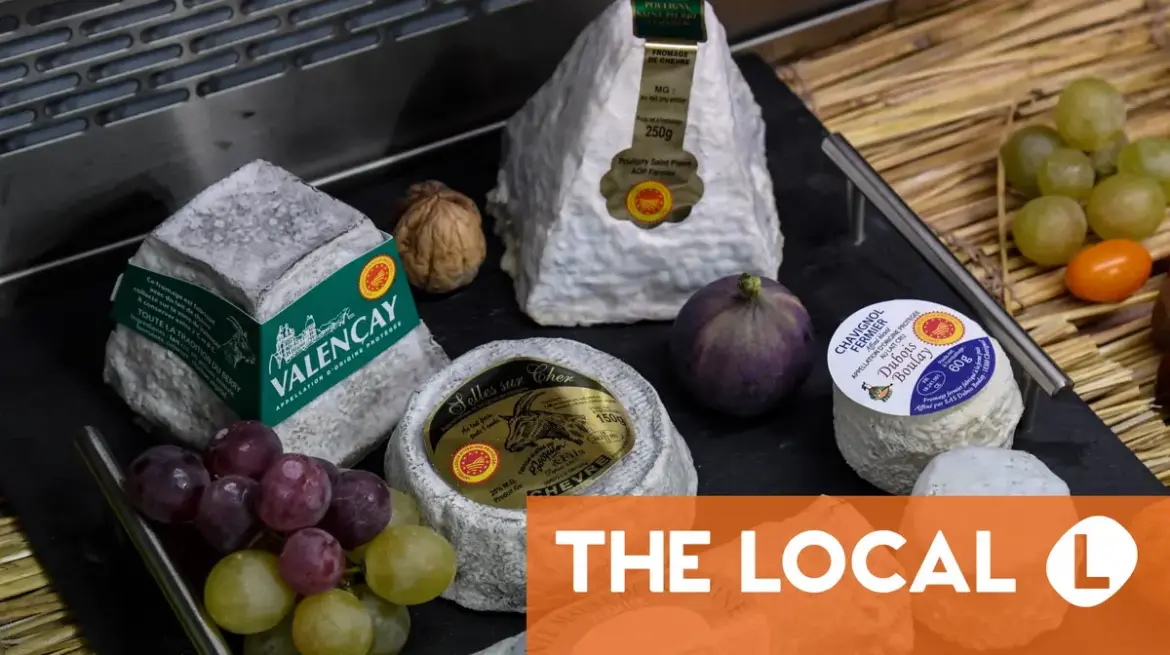The UK has banned imports of raw milk cheeses from France and Italy on what it says are safety grounds – but the same cheeses are still on sale around Europe.
Bad news for UK residents who like iconic French cheeses such as artisan-produced brie, roquefort and reblochon or Italian classics such as pecorino … these will no longer be available after the UK banned their imports from France or Italy.
However if you are in those countries – or any other EU country – you can enjoy them to your heart’s content.
So what’s going on?
The UK’s agriculture ministry Defra says that all imports of cheeses made in France or Italy with unpasturised milk are now banned.
This affects any cheese made with raw milk or unpasturised milk – including some of France’s most famous cheeses such as Vacherin, Roquefort, Mimolette and Tomme. Brie made by small artisan producers is likely to be unpasturised, although factory-produced brie can be made with pasturised milk.
Advertisement
It affects fewer Italian cheeses as the big names such as Parmesan are made with pasturised milk, but artisan-produced mozzarella is often made with raw milk, as is pecorino. You can find a full list of the affected cheeses here.
Any cheeses produced before May 23rd are exempt, if the importer can produce the necessary paperwork – meaning that shortages will become apparent gradually, as some aged cheeses will continue to be imported over the next few months.
The rules mostly affect commercial imports, but theoretically also apply to holidaymakers wanting to bring back a wheel of lovely, stinky European cheese.
All of the above cheeses remain on sale throughout the EU.
So why the UK ban?
It’s due to an outbreak of a cattle disease with the imaginative name of Lumpy Skin Disease (LSD) which, you will be surprised to hear, causes lumps on the skin of affected cattle. In France the disease is known as dermatose nodulaire contagieuse (DNC).
It is spread by the bites of flies and mosquitoes. Italy confirmed its first case in Sardinia on June 21st, 2025, leading the UK to revoke Italy’s LSD-free status and suspend unpasturised imports. France reported its first LSD case near Chambéry on June 29th.
Quarantine zones are in place in the affected areas with a vaccination programme for the cattle, but cheese sales have not been suspended.
The UK’s import ban also affects the import of live cattle.
Can Lumpy Skin Disease be spread by eating cheese?
No, there is no risk to humans from eating cheese that has been produced by a cow suffering from LSD, and in fact humans cannot get LSD under any circumstances.
The UK government says that it is acting to prevent the spread of the virus among British cattle – hence the ban on live cattle imports. It says that the virus can survive in raw milk, including cheese made with raw milk. So if a British cow ate a brie sandwich then it could get Lumpy Skin Disease.
That sounds like a small risk?
Frustrated cheese sellers in the UK say that the ban is disproportionate. Cheese-mongers told The Grocer magazine that the ban is “costly, illogical and deeply frustrating”, saying there is no risk to people from these cheeses.
Advertisement
Shane Holland, a cheese retailer based in London, told UK newspaper The Independent: “The bigger question is, what is the ban for?
“We completely understand restricting the movement of live cattle. LSD is an infectious disease from cattle to cattle. But if we’re talking about from cattle to milk, there’s no cattle-to-human transmission at all. Even if there was the tiniest risk, it’s not being consumed by cattle anyway.”
A Defra spokesperson stood by the ban, saying: “This government will do whatever it takes to protect British farmers and their herds from disease,” adding that most Italian cheeses, such as Parmesan, Mozzarella and Gorgonzola, should be unaffected as they are largely pasteurised.
However the UK is not the only country to impose a ban – Canada has also banned imports of unpasturised cheese from France, Italy and Switzerland.
Advertisement
Is this why Eurostar is telling me I can’t take a ham sandwich on my journey from Paris to London?
No, that’s a different issue, it’s because of an outbreak of foot and mouth disease in continental Europe.
Germany detected an outbreak in January but has since been declared FMD-free, however subsequent outbreaks in Hungary and Slovakia have persisted.
In response, the UK recently announced that it has banned imports of meat or dairy products from European countries where the virus has been detected, as well as Austria due to the outbreak in neighbouring Hungary.
However travellers are being advised that meat and dairy products from all EU countries are banned, which is why you may have received an email from Eurostar or ferry companies if you have recently travelled from France to the UK.
Foot and mouth disease does not affect humans but is highly contagious among cattle. A major outbreak in the UK in 2001 led to the culling of more than six million animals and cost the economy billions, devastating the livestock industry and tourism.


Dining and Cooking